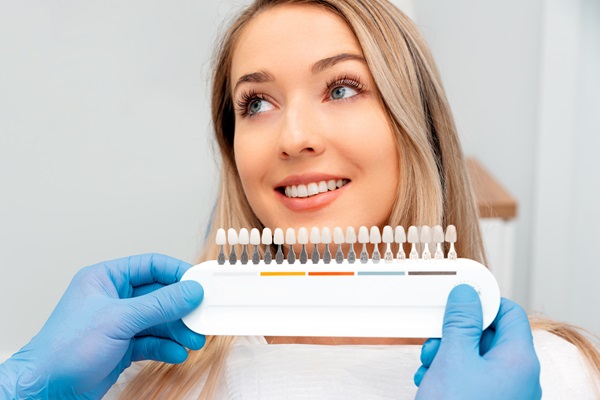Caring for Your Dental Veneers: Tips for Long-Lasting Results

With dental veneers, a dentist can change the tooth’s size, color, and length by attaching these tiny porcelain pieces to its surface. Veneers are a popular solution for many cosmetic dental problems, including chipping, gaps, and discoloration. Although porcelain veneers are a sturdy and durable choice, they require proper maintenance to last long.
Tips for extending the lifespan of dental veneers
Dental veneers will last longer and look better if patients care for them correctly. The following are practical tips for long-lasting results:
Proper dental hygiene
Good oral hygiene is key to extending the life of dental veneers. Patients should brush their teeth twice a day using a soft-bristled toothbrush and mild, nonabrasive toothpaste. Proper flossing and brushing will prevent plaque from building up around the veneers and the gum line.
Limit staining foods and beverages
Like natural teeth, veneers are susceptible to discoloration from certain foods and drinks. It is advisable to limit the intake of coffee, tea, or red wine, and foods with rich pigment hues, such as berries. After consuming such meals, one should remember to rinse their mouth thoroughly with water. A good alternative is to use straws to prevent the beverage from coming into contact with the veneers.
Smoking causes discoloration of teeth and dental veneers in addition to the well-known health risks. Tar and nicotine have the potential to discolor teeth and veneers over time. Quitting smoking improves one’s oral health, which in turn improves the smile.
Visit the dentist regularly
Regular dental checkups are essential to maintaining the health and strength of the teeth and veneers. The general dentist will check the condition of the veneers, clean them thoroughly to remove stubborn plaque, and spot issues before they worsen. Patients should try to get an appointment at least once every six months, or more often based on the dentist’s suggestion.
Avoid stressing the teeth
Almost everyone has used their teeth to split nuts or open containers. Veneers, however, are just as susceptible to chipping and other damage as natural teeth. To avoid damaging the veneers, patients should use the correct tools to open bottles. Chewing on hard foods or substances can also damage the dental veneers.
Treat teeth grinding
Also known as bruxism, teeth grinding can cause headaches or a painful jaw. Clenching or grinding the teeth excessively can put patients at risk of severely damaging their veneers and natural teeth. It is important to discuss this issue with the dentist. They might recommend wearing a nightguard to protect the teeth and veneers during sleep.
Final note
Visit the dentist immediately if you notice any changes to your veneers, such as rough edges, increased sensitivity, or a change in look. You can keep minor problems from becoming worse and your veneers in good condition for longer with prompt dental assessment and treatment.
If you want your veneers to last as long as possible and keep your smile looking beautiful, you need to take proper care of them. To learn more about this treatment, schedule an appointment with our dental office.
Request an appointment here: http://www.albanydentalcare.net or call Albany Dental Care at (765) 780-2078 for an appointment in our Albany office.
Check out what others are saying about our dental services on Yelp: Dental Veneers and Dental Laminates in Albany, IN.
Related Posts
Dental bonding is a minimally invasive way to enhance or repair the smile. Whether the issue is staining or a minor crack, bonding can be a quick and effective way to address it. Learning more about this common dental service can help you determine whether it is the best option for restoring your smile. Dental bonding…
Choosing between a dental crown and a filling depends on the extent of damage and the tooth's strength. A crown offers superior coverage by restoring the entire visible portion of a tooth. At the same time, fillings address smaller areas by sealing decay with materials such as resin composite, amalgam, or porcelain. No matter your…
Complications after a tooth extraction are uncommon, but understanding the warning signs helps protect long-term oral health. During healing, problems such as infection, dry socket, or prolonged bleeding can occasionally develop. Knowing what to watch for and when to call a dentist supports a smoother recovery. Below are a few things to watch for after…
During a dental practice visit, dentists assess the patient and then treat the issues scheduled for that day. It is a dentist’s responsibility to provide safe and extensive dental treatments. The patient goes home with a cleaner, healthier mouth and a better perspective about dental health. Each dental practice has its own set of steps…
